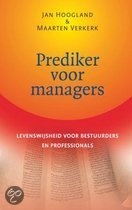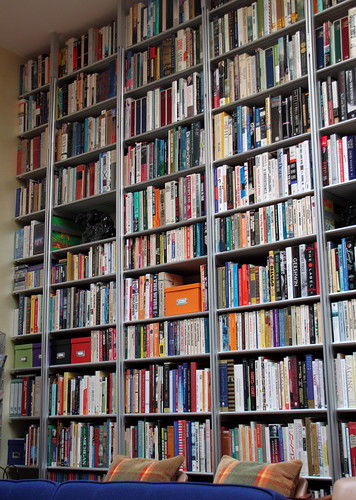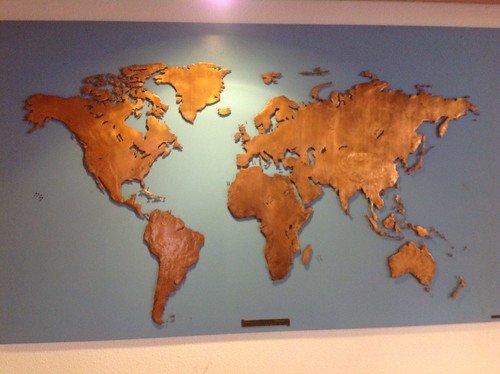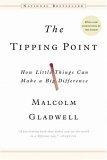- “To begin with, the ground should be cleared by wiping off the globe the words terra incognita.”
- “The map of the world ought to be completed, and it is the duty and, I believe, the interest of every country to complete that portion which includes its own territory.”
- “Unsurveyed and unmapped territory is a danger as well as a disgrace, to the country possessing it; and it would hardly be too much to say that boundary disputes would be unknown if new lands were mapped before their mineral wealth is discovered.”
- “The acquisition of knowledge is a simple process, for which multitudes have a natural aptitude; but the co-ordination of knowledge and its advancement are very different matters.”
- “A more serious difficulty is that different languages favour different modes of thought, and thus lead to different methods of classification.”
- “It is the nemesis of the temptation to adopt a plausible and probably true hypothesis for the demonstrated truth and to proclaim broad and attractive generalizations on the strength of individual cases”.
Read
As I have shared my confession to books, it may not be a surprise that I like to share what I have read. I do write a review on most books as a thank-you note to the author (well, mostly). Find all of them on Anobii or the more work related ones on LinkedIn (in case we are connected there!). My “complete” bookshelf can be found here: http://www.anobii.com/jwve/book.

Cocreation requires new capacities of the firm. Management must seek new ways of access and appropriation of value, without ownership. Building blocks in the process e.g. are constant dialogue, transparency, risk assessment, agility. The network of experiences are an integral part of the product experience.
The book makes you think where the real value of a firm lies, and hence what values can easily be freely revealed. I appreciated the “Strategy has become like efficiently navigation in the fog.” I concur. A good (re)read. Prahalad is still in my top three of business gurus.

Drucker describes how large enterprises (having to innovate in order to survive) are evolving to a world where alliances, joint ventures and knowledge sharing are the building blocks of a kind of confederation. These organizations need to do three things well, and at the same time: improve, expand and innovate. The success of the firm will increasingly depend on knowledge workers, which have, like knowledge itself, become more mobile than ever before.
Drucker reminds us that markets are instable and not a predictable system and that ong term planning is just about a belief system. Read this as well if you want to know why Kafka received a medal from the American Safety Congres, who invented the term ‘profit center’ and why he is sorry now, and what problems liberal economic theory brings us.
 Says my reading list by Amazon on my LinkedIn page, but I would not rate that as a trustworthy source. Actually, it is not true either. Some books I have put aside and I might still finish them in the near future. My library holds many more books then this list, it is just that I started sharing what I read more recently. Anobii takes a much more open approach to sharing what one reads compared to Amazonen/LinkedIn, so I recommended that, if you want to take the open road on reading. Being open about what I read has brought me numerous interesting conversations, which is what it is all about.
Says my reading list by Amazon on my LinkedIn page, but I would not rate that as a trustworthy source. Actually, it is not true either. Some books I have put aside and I might still finish them in the near future. My library holds many more books then this list, it is just that I started sharing what I read more recently. Anobii takes a much more open approach to sharing what one reads compared to Amazonen/LinkedIn, so I recommended that, if you want to take the open road on reading. Being open about what I read has brought me numerous interesting conversations, which is what it is all about.
This ‘one hunderd mark’ is not meant as a Tom Peters’style milestone. Book-omnivorism runs like an epidemic in the family. Mamma used to tell me that reading books will make you smart. As I do really do stupid things on a somewhat regular basis, I am living proof that books do not make you smarter. They can rather make you wonder more.
The problem with books is that there are way too many of them. The books I read come in a few rough categories: the ancient world (more Roman then Greek), philosophy (rather, the life of philosophers), business (an extreme wide category, reaching from books about strategy, to marketing, to social networks) and science. The most interesting books are those that do not match any category.
Books can be interesting just by themselves, but I find them even more interesting when they become part of a bigger puzzle. Who was the first one to write about the printing and the digital revolution? Did Gladwell not mention Evert Rogers, when discussing about ‘what ideas spread’ (Kotler did)? Erasmus read Plato? So did Popper. Did Spinoza actually meet Rembrandt? Was it Thomas Paine to first describe “the wisdom of the idiot” and is that were “wisdom of the crowd” came from?
BTW: I know the title of this blogpost is yoda style. Just a reminder to not take these scriblings too seriously. Back to books now, finishing up on Peter Drucker (who, it appears, stems from a Dutch family…of book printers).
A book on how ideas can spread I just had to re-read. Gladwell brings his book in a structure of making a point (…) within a framework, loaded with good examples. He introduces Connectors, Mavens and Salesmen, which in proportion, with the right sticky message and in the right context will start up a social epidemic. Not that it is an easy endeavor, but there is certain point which puts the epidemic into motion.
This easy-to-read book mentions Milgram, Leventhal and Zimbardo experiments (among others). I missed a part on Everett Rogers (while G Moore does get a mentioning) but then again there are plenty of other good referrals.
Read this if you want to know how Airwalk started to listen to the sales department and hence disappeared into oblivion; why 150 is the ideal number of a community and why seven is the magical number. And how ideas may spread.
http://www.gladwell.com/tippingpoint/
A “Mintzberg does it again book”: he looks at what managers actually do and makes a conceptual interpretation of his observations. A book about the simple reality of the average manager. Mintzberg sees her work (management) as a practice, that is learned in context. And it is practiced in the triangle of art, craft and science. Management gurus take a one-side view on management (within the contemporary management correctness), whereas it is the integral approach that makes management effective.
Management exists of a never ending range of activities, in which important and less important activities need to be addressed in a fast pace. When Mintzberg presents 52 qualities of an effective manager, one can understand that person does not exist. The fabric of effective management is woven with many difference threads and synthesis and balance are its essence.
In Managing, Mintzberg addresses a few myths along the way (like the difference between leadership and management, the way managers depend on formal systems of data and the manager as a thinking, systematic planner). And he has a few recommendations as well…If you know his earlier work, Mintzberg’s call to action is not a surprise. Read more about that at the complete source http://www.impm.org/ or http://www.mintzberg.org/.

Het gaat aldus om zingeving voor werkenden, ingegeven vanuit Prediker. Oude wijsheden, voor ons vertaald naar het heden, en gerelateerd aan de huidige bedrijfsdenkers (o.a. Ansoff, Covey, Collins/Porras, N. Klein, Mintzberg, Peters/Waterman, Plato, Porter, Kets de Vries, K. Weick). Die woorden van wijsheid dienen langzaam te worden gelezen, net als dit boek.
Prediker relativeert o.a. het menselijk streven naar succes. En merkt op dat plannen (net als mijlpalen) slechts dienen om in beweging te zetten (dat is al een mooi streven). En ziet wijsheid als een houding, die komt met reflectie. En verder gaat dit boek over De kunst van het ontvangen, Geen enkele verdienste leidt tot levensvervulling, Met wijsheid komt je er niet. En..
Als ik dan toch een quote van een quote moet weergeven: “En tot slot, mijn zoon, nog deze waarschuwing: er komt geen einde aan het aantal boeken dat geschreven wordt, en veel lezen mat het lichaam af.” Prediker 12:12. En daar kan deze boekomnivoor het voorlopig even mee doen.
 After having read The Shallows (by N. Carr) I more than ever realised that I am a book person. Not sure what caused it and it has not always been this strong, but books have always been around me. I usually read one or two books at the time and have a list of –yet to read- books as well. While reading most books I take notes (actually write down the page number and sentence as well).
After having read The Shallows (by N. Carr) I more than ever realised that I am a book person. Not sure what caused it and it has not always been this strong, but books have always been around me. I usually read one or two books at the time and have a list of –yet to read- books as well. While reading most books I take notes (actually write down the page number and sentence as well).
Some books I just read for the reading: being disconnected to really get the whole book. Deep reading books get my mind really wondering as well. Loosing oneself in a book is a great compliment to the author (I think). The natural state of the brain seems to be distractedness. While reading deeply, one can think deeply as well (says Carr).
There are patterns in the books I read. One pattern is subject of interests (e.g. innovation, free culture, geography, philosophy), another is people of interest (e.g. Lincoln, Wittgenstein, Hadrianus), yet another time periods (Ancient Rome, Great Explorations). Somehow these subjects keep overlapping. Apart from these patterns, I do allow for serendipity. No better place than the library or a bookshop for that.
Just liking writing things down (with a real pen or pencil) works better for me to remember what I read, so does deep reading in ‘real’ paper books. I will keep trying e-reading every now and then. But, like a listening book, it just doesn’t stick.
Not too long ago, I have started to share the books I read online (and a few notes or comments about them). It has caused surprising reactions:
- People have asked me advice about some of the (business) books I have read. Several of these people I have never met before.
- I have communicated with authors of books and felt that very rewarding (e.g. with Jeff Jarvis).
- I have reacted to what others are reading, and was able to borrow books that way.
It is these kind of responses I hope for when I share what I read.
I feel blessed by finding and taking the time for deep reading. A long commute (at times) helps. I do not notice fellow passengers and train stations; they don’t really bother me. And I have failed my planned destination only once due to a book way too interesting.
The Shallows is a great book to read. What intrigues me: what if I meet people who have read all the same books as I have? Would that be an extreme boring or an extreme inspiring meetup? I also have a confession to make about maps and scientific publications, but that is a different kind of story. Back to reading now. Hume.
[openbook booknumber=”ISBN:9780393072228″ templatenumber=”1″]
 Just finished reading Free Culture by Lessig. Way too late, but I tend to read great books not rightaway when they come out. My understanding of free culture, public domain and creative commons is now at a level that I feel comfortable reading and understanding EC documents on the topic. It seems as if it is not just for me an difficult issue.
Just finished reading Free Culture by Lessig. Way too late, but I tend to read great books not rightaway when they come out. My understanding of free culture, public domain and creative commons is now at a level that I feel comfortable reading and understanding EC documents on the topic. It seems as if it is not just for me an difficult issue.
Many approaches to a the commons seem a paradox to me. Here are a few examples:
- A recent report by TNO on open data (a commons of data) was copyrighted. Quoting from that report was fine (fair use), but really using it required permission. Should at least a government report on open data be in the commons?
- You may write about open source (and open innovation) in magazines with copyrighted content. You write about ‘their commons’, clearly not about yours. (don’t have the links handy now, they are easy to find). Fair?
- I presented at a meeting on open (geo) standards and open source, which was organized by NOiV. They were many pictures taken, made available on Flickr, but clearly marked copyright! I did ask permission to use a picture of myself… bit odd (I know I don’t have to ask permission, but I just wanted to make a point).
- During a more recent NOiV event, one of they keynotes from IBM presented on the greatness of Linux and others OSS, while having a big © IBM on each slide.
Wicked stuff? Or just open oddities? Again, I don’t see a 100% world of openness (or 100% closed for that matter). But sometimes the choice of open really strikes me. It’s like: listen here, we are talking about your commons here, not ours!

What the digital world brought us: if you read my blog, we both win. Giving away thoughts and ideas has become easier than ever before. I recall a discussion at the U of G about the sociality of giving. According to sociologist Marcel Mauss, reciprocity is always involved. I tend to doubt that, but who I am to challenge it. But giving is possible without expecting any return. It created the –ever existing- gift economy. Real gifts do not require any return and the best gift is giving away art.
A few great remarks:
The easier you can quantity something, the lower the value is.
Plastic smiles don’t have impact.
Great work cannot be for everyone, else it would be mediocre.
Very much agree with : School (education at large) should teach students to solve interesting problems and to take charge. The “there is no map” chapter title is kind of hurting to a cartographer-at-heart, but the following remarks make up for that:
Scientists make maps, and the map is never perfect.
There is no map for leadership, no blueprint for art.
If a map existed, it wouldn’t be art; art means you are looking for the road, without a map.
I love it when there is no map. (so do I!)
Mapmakers often have the confidence to make new maps, because they are knowledgeable.
Linchpin is not a must-read, but I do like most of the messages Seth brings us. And I should look into The Lonely Crowd (Riesman/Glazer/Denney) as well.



